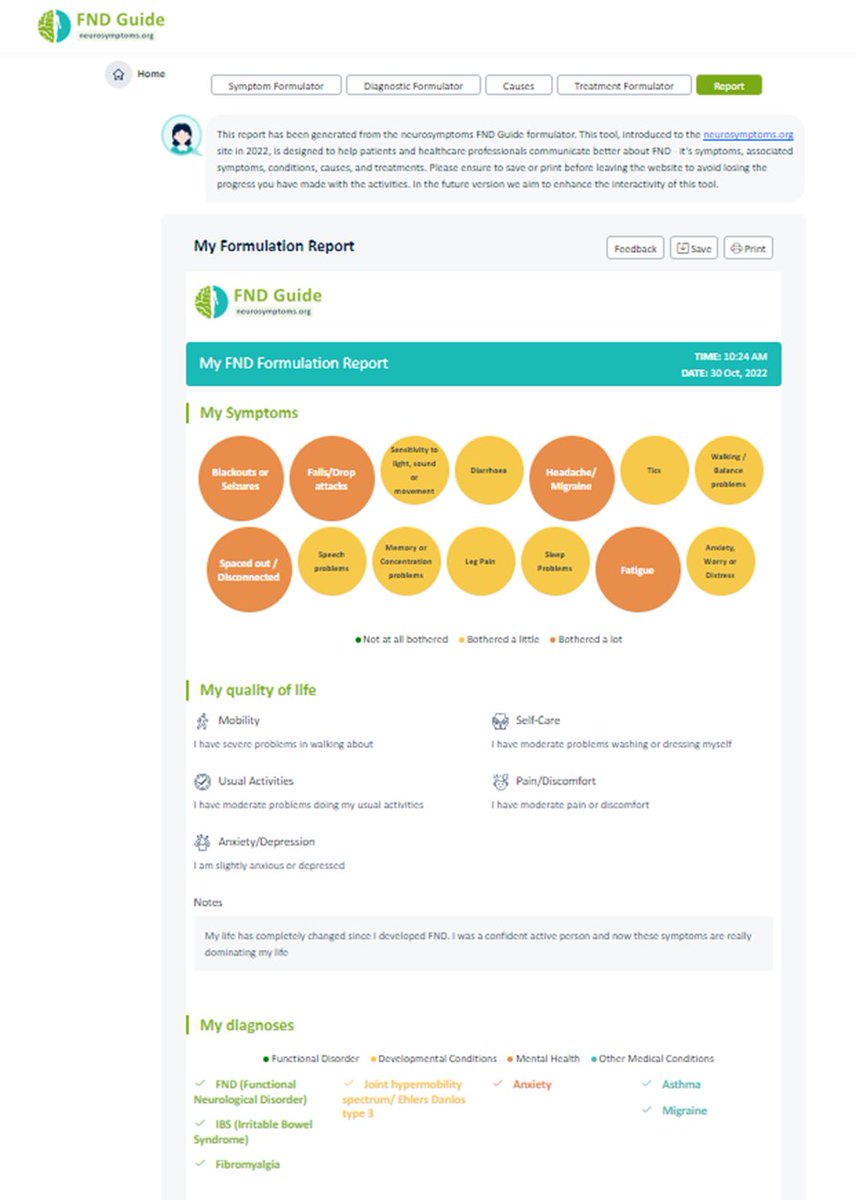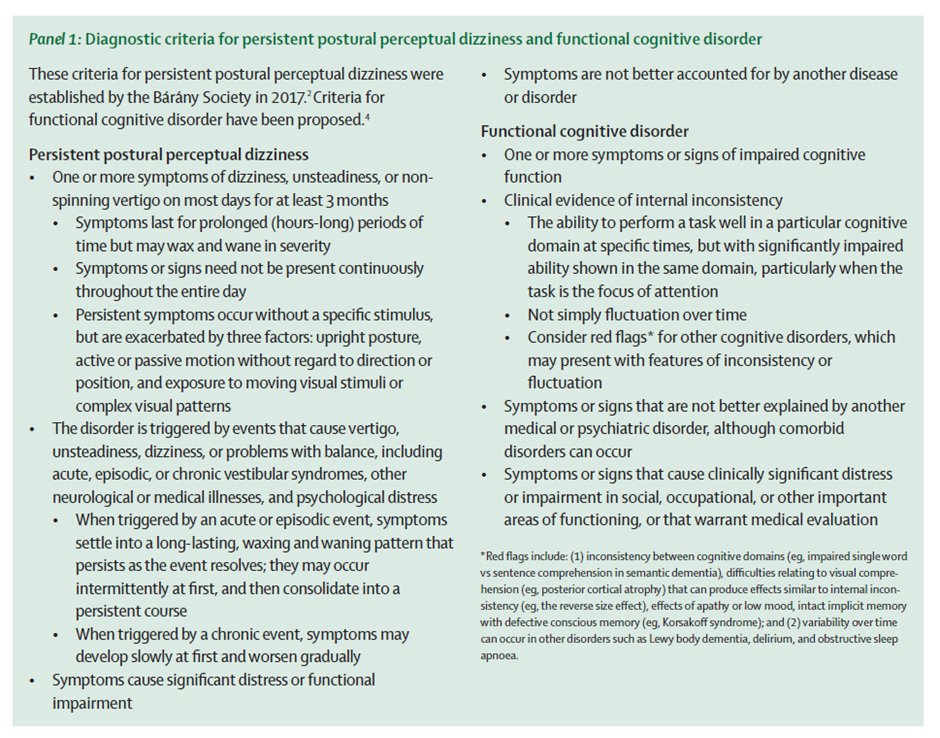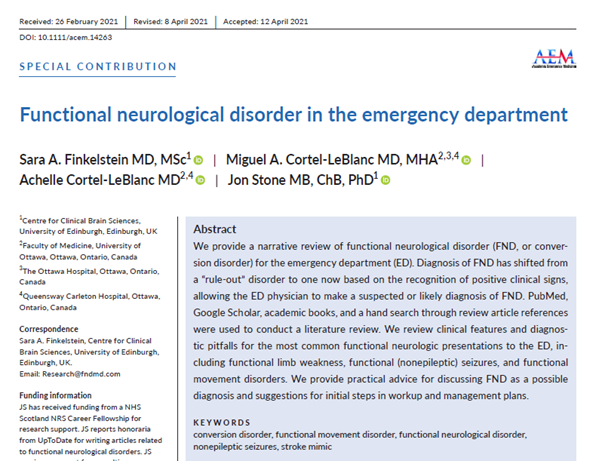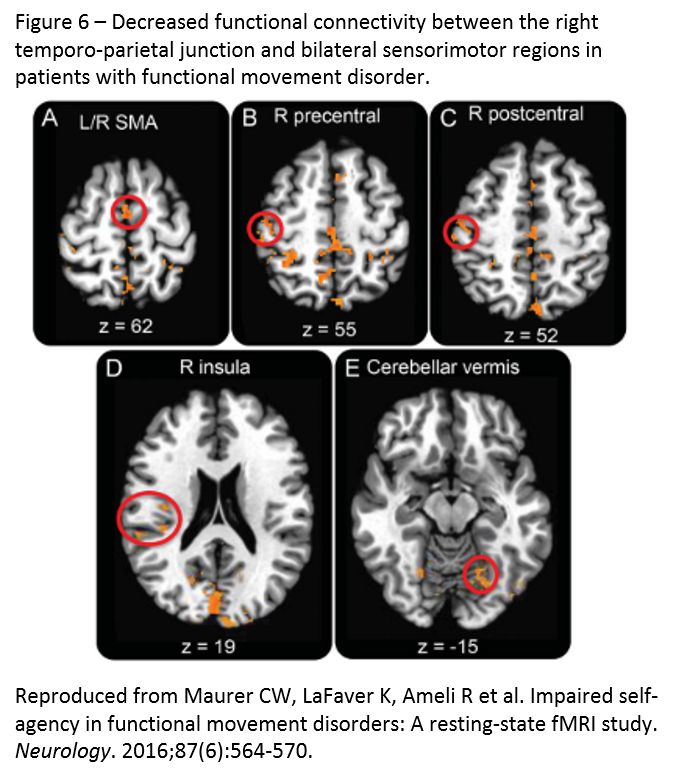
FND thread collection from this account. Went back and chose a few I've been personally involved with- some based on our 10 myths of FND paper. 1/
https://twitter.com/jonstoneneuro/status/1268626216040501252?s=20
FND is a diagnosis of inclusion. We covered some of the positive diagnostic features of FND in a BMJ review in 2020. 
https://twitter.com/jonstoneneuro/status/1318865674199027712?s=20

It's not unusual to have FND and another condition, like epilepsy or MS. It doesn't have to be one or the other. We're also learning how issues like joint hypermobility, autistic spectrum disorder and many others may be relevant.
https://twitter.com/jonstoneneuro/status/1363892552471052289?s=20
FND is not feigning or malingering. Thanks to everyone who helped boost this recent tweet and @natrevneurol review with Mark Edwards and @M_Yogarajah .
https://twitter.com/jonstoneneuro/status/1626229874041188352?s=20
FND shouldn't be thought of as only 'psychological'. Psychological risk factors and difficulties are common in FND but they are just risk factors and don't apply to everyone.
https://twitter.com/jonstoneneuro/status/1514752944075325453?s=20
The brain doesn't have a 'psychological' bit and a 'neurological' bit - it's all one thing. FND is a disorder that OUGHT to exist based on contemporary models of how the brain operates in a constant state of prediction.
https://twitter.com/jonstoneneuro/status/1514752968834355208?s=20
In FND the brain is trying too hard to move, and feel. When you try too hard to go to sleep - there's no way you're going to sleep.
https://twitter.com/jonstoneneuro/status/1557351119973715970?s=20
This is why we've really got to stop using the word 'organic' - everything that goes wrong in the brain and to people is 'organic'. How could it not be?
https://twitter.com/jonstoneneuro/status/1260834943565025290?s=20
FND research has really been taking off in the last few years. The @fndsociety is helping to bring researchers together with a common purpose to figure out the causes and treatment of FND
https://twitter.com/jonstoneneuro/status/1497365367383072772?s=20
FND and chronic pain are partly what happens when your brain 'learns' the wrong way to move and sense. How can you help your brain 'unlearn' something when you can't just switch it off- it's really hard. tamethebeast.org
But a good place to start is educating yourself about FND - I hope neurosymptoms.org - revamped in Jul 2021 with a phone app helps
https://twitter.com/jonstoneneuro/status/1410478763335372804?s=20
I also did this Q&A webinar for @FNDHope in 2022.
https://twitter.com/jonstoneneuro/status/1591554103506870274?s=20
And if you already have a diagnosis of FND and are trying to get your head around what caused it or other issues like pain - and want to communicate better with your healthcare provider try the FND formulator
https://twitter.com/jonstoneneuro/status/1586677572397580289?s=20
We've made progress in defining and testing what physiotherapy, psychological therapy, occupational therapy and speech and language therapy should look like in FND
Occupational Therapy for FND - led by @CNicholsonOT
https://twitter.com/CNicholsonOT/status/1289196781801107458?s=20
Psychological therapy for FND - the CODES trial led by Laura Goldstein. and evidence from other psychological therapy trials as well -
https://twitter.com/mjgutkin/status/1324515699339898881?s=20
https://twitter.com/jonstoneneuro/status/1263249691074088962?s=20
And speech and language therapy for FND - led by @JanBakerVoice and @lauramcw
https://twitter.com/lauramcw/status/1410863797892530178?s=20
There are so many brilliant patient organisations, advocates and researchers in the FND community now - I can't name them all.
There are hundreds of great research papers, media campaigns, threads, conferences and short films out there. Exciting times!
There are hundreds of great research papers, media campaigns, threads, conferences and short films out there. Exciting times!
But special shout out to colleagues in Edinburgh especially @AlanCarson15 @IngridHoeritza1 & @lauramcw, the rest of the Edinburgh FND research group (see report below) and our financial supporters.
https://twitter.com/jonstoneneuro/status/1612213532476715009?s=20
• • •
Missing some Tweet in this thread? You can try to
force a refresh

















